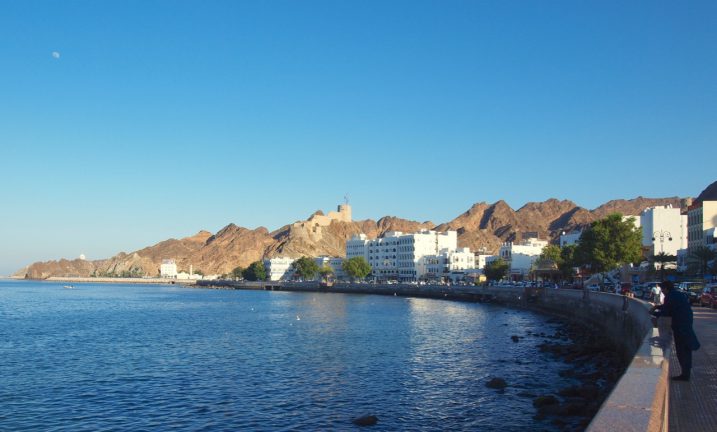Insha’allah, Tawakkala and other surprises in Oman
Jan 31, 2017 · by Neal Taylor

Taking on the role of Cultural Correspondent for Oman last year challenged me to replay in my mind the striking cultural differences I ran into when I first arrived in the country. After years of living, working and deal-making with Omanis, it’s now sometimes the European ways which seem strange to me. Back in those early days, Oman was throwing surprises at me in almost every situation I got into.
Insha’allah, tawakkala, we will get there!
One time I was invited to lunch in the town of Sohar, which is a two-hour drive away from the capital, Muscat. I went to an Omani friend’s house, Hamed, to catch a lift with him. I arrived just in time to set off.
I sat myself in the car put my seatbelt on and sat there for half an hour whilst Hamed had a long conversation on his phone with his father.

After the conversation, we started driving towards the motorway but before we entered it, we stopped at a teashop for chai even though we were already running late.
After two casual cups of tea we started driving in the opposite direction of the motorway and picked up another friend who had rung up during our teabreak and decided impulsively that he wanted to join us for the lunch in Sohar.
After picking up Saïd, we got onto the motorway and promptly pulled in at the next petrol station.
Whilst Hamed filled up the car, Saïd and I took tea and got onto the conversation of “insha’allah” (God willing). I noticed that he had used a different word, “tawakkala”. It means to have a trust in God. ‘The difference to “insha’allah” is subtle but important’, he informed me as we slowly walked towards petrol station shop to pick up some sweets. I cannot remember if I actually asked what the difference was but, either way, he then spent 45 minutes in the doorway (seeming not to notice the doors automatically closing every fifteen seconds) explaining to me what that subtle difference was. As part of this explanation, he recounted his life story from his student days to his current position as company director.
Content with his story, we paid for the petrol, tea and sweets and continued our journey.
A while later, I asked our new friend, Saïd, why he had brought a traditional walking stick. He explained that Omanis take a walking stick when they go to a funeral.
‘We need to go to a funeral,’ he announced. Hamed simply asked where the funeral was. He made a detour and we went a funeral.
In the end, we arrived at our original destination five hours late for lunch. But in time for dinner.
Our hosts were content to receive us for dinner.
Surprises for Europeans
From my original European perspective, time, fate, tasks, directness, group membership and many more dimensions of culture can throw up surprises in Oman.
Over the years I have also been witness, participant or sympathetic ear to hundreds of other incidents involving Omanis and foreigners. I’m pleased to say that the insights are now available inside CultureConnector‘s newest national profile: Oman.
In the profile we follow CultureConnector’s 12-dimension approach and quickly go deeper too. There is a clear Omani pattern of behaviour in some situations, but for example a boss may be far more direct than someone lower down the hierarchy, even talking with people at the same level. Generalisations are a good start. The text you can read in CultureConnector adds some necessary depth.
Check it out. Comparing your own profile, you’ll quickly see that Oman may have some surprises for you too.
Late for lunch
And if someone is waiting for you to arrive for lunch, consider whether they will view your arrival time from an Omani perspective. It may be better to arrive late having shown respect to an elder, a new friend and at a family event.
In a hurry? Stay for another tea.
